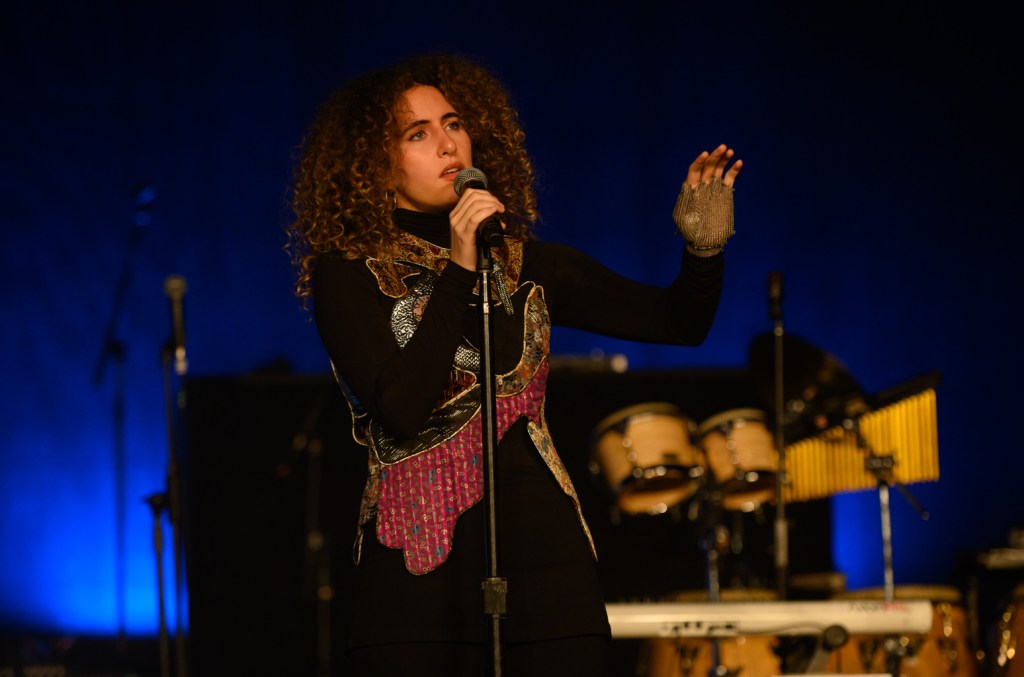Amid the offerings at the LA3C festival that took place in downtown L.A. this past weekend (Nov. 11-12), a presentation from the Saudi Arabia Music Commission put forth a broad view of the music industry currently being developed in the country.
Hosted by VIBE editor-in-chief Datwon Thomas, panelists included Paul Pacifico, CEO of the Saudi Music Commission; Ahmad Alammary, chief creative officer for the Saudi electronic music festival Soundstorm; Gigi Arabia, the founder/CEO of Saudi heavy metal organization Heavy Arabia; Mexican-American songwriter, producer and academic Fernando Garibay, who has worked in the Kingdom; and Saudi singer-songwriter Tamtam.
Saudi Arabia has seen significant social changes in the last decade, as the government has eased restrictions around formerly prohibited activities like playing music in public and co-ed gatherings. These new freedoms have helped lay the groundwork for the formation of a music industry, with the bulk of the panel discussion focused on how this industry is currently being built from scratch.
“We have huge pent-up supply of creativity and music,” said Pacifico, a Brit who joined the Music Commission as CEO in January 2023. “We have huge pent-up demand among audiences that have grown up wanting to go to festivals, concerts, events, to listen to music and enjoy themselves.”
“But we lack enablers,” Pacifico continued. “So over the next one year, three years, five years, it’s going to be all about building the structures that connect those dots that allow people to express themselves creatively and to build platforms that will enable Saudi artists to tell their stories in a way that will be heard around the world.”
“A lot of people working in the [global music] industry ask how we can fix our industry, or how we can rethink our industry,” added Garibay, “but I don’t think we’ve ever had in the history over the past 100 years a chance to think about, ‘How would you start over? How would you start from a new perspective?’”
The discussion emphasized that while Saudi Arabia does not yet have venues, a collecting society and other essential infrastructure, this clean canvas is allowing key players to, Alammary said, “shape it the way we want to learn from the lessons around the world and actually serve artists.”
Pacifico cited the major opportunities for artists in Saudi Arabia with respect to the country’s demographics, saying that “70% of the people are under 35 years old, and the country has 98% Internet penetration. So you have a young, connected, dynamic and unbelievably energized population.”
The panelists agreed that this audience and the emerging industry combined are creating huge opportunities for Saudi artists, as formerly underground scenes are coalesced and, as Alammary said, “unveiled.” These formerly underground scenes include those around genres like electronic music, the focus of the Saudi mega-festival Soundstorm that launched in 2019, along with hip-hop, heavy metal and more.
“All of the events took place in super unconventional places,” Arabia said of the Saudi metal scene before music-related restrictions were lifted. “We have something in Saudi called rest houses, little houses in the middle of nowhere for people to rest in if they’re going on a road trip, where events took place.”
“We’re still growing it event by event,” Arabia added in regard to the country’s current aboveground metal scene. “With the help of the Music Commission and its leadership, now we have been able to go and represent it in the genre globally.” She foresees Saudi Arabia becoming a “hotspot for metal heads” in a fashion similar to the Nordic region.
The Music Commission exists under the Saudi Ministry of Culture, a government entity focused on expanding the country’s entertainment sector through endeavors into music, sports, film and more. These entities exist as part of Vision 2030, the Saudi government’s plan, it says, to diversify the country’s economy, society and culture. (The LA3C panel did not touch on the challenges of building an industry amid the still-existing restrictions of the Saudi government, which does not protect freedom of speech and which, despite some recent advancements, still imposes myriad restrictions on women.)
“There’s an incomplete picture. It’s like a jigsaw puzzle with pieces missing,” Pacifico said of the country’s current industry, “But we see record labels coming up, we see management companies growing. The most amazing thing is the whole music industry is going through an accelerated time of massive change, and Saudi Arabia as a country is going through a massively accelerated time of change. So nothing’s taken for granted… and we can just think again about how to do things better, quicker, more efficiently.”
The presentation also included performances from Tamtam, Saudi pop artist Mishaal Tamer — who released his debut EP in 2020 via RCA Records and opened for OneRepublic on tour this past summer — and Riyadh-based producer and songwriter NTITLED.
LA3C was built to highlight communities creating culture around the world. LA3C created a paid partnership with the Saudi Music Commission to highlight the cultural shift in the commercial entertainment sector and with regional artists that have a presence in the United States and Saudi Arabia. LA3C is owned by Penske Media Corporation which is also the parent company of Billboard.
Source link










